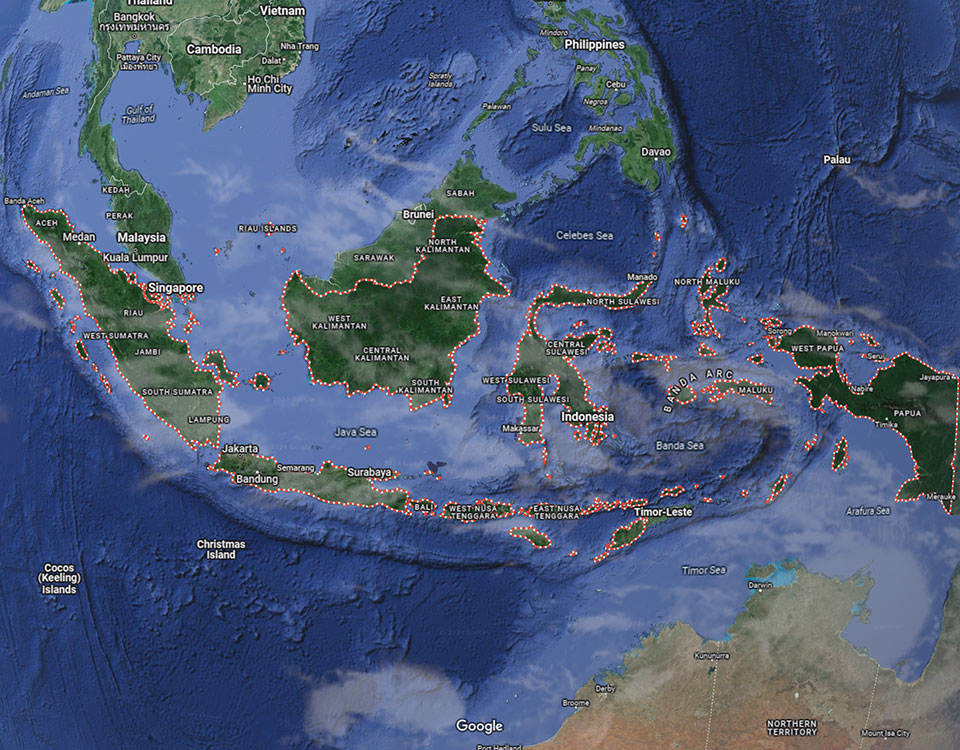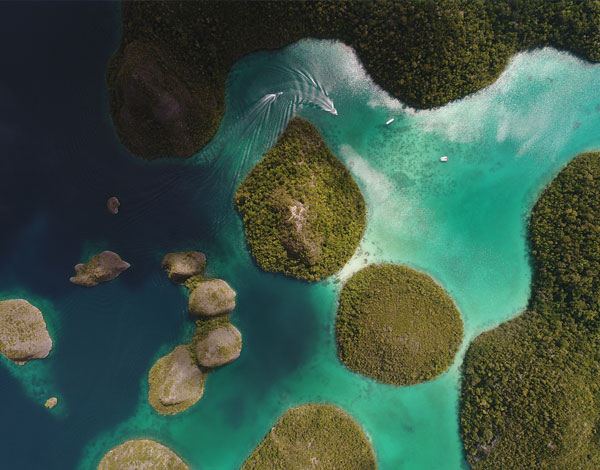Indonesia: Emerging Economic Powerhouse
Indonesia at a Glance


| GDP: | $1.32 trillion (2022) |
| GDP Growth: | 5.3% (2022) 5.0% (2019) |
| Population (Urban Population %): |
275 million (58%) |
| GDP per Capita: | US$4,788 (2022) |
| Currency: | Indonesian Rupiah (IDR); 16,224 IDR per 1 USD (April 2024) |
| Land Area: | 1,905,000 km2 |
| Border Countries (Border km): |
East Timor (269 km) Malaysia (2,020 km) Papua New Guinea (820 km) |
| Major Cities (Population in million): |
Jakarta (10.56) Bekasi (3.1) Surabaya (2.9) |
Investment Highlights
01ROBUST ECONOMIC GROWTH DRIVEN BY DEMOGRAPHICS AND DIVERSIFICATION

Indonesia's economic growth trajectory is underpinned by its demographic dividend and ongoing efforts in economic diversification. With a population exceeding 275 million people, Indonesia boasts the world's fourth-largest population, with a median age of around 30 years. This youthful demographic profile not only fuels domestic consumption but also provides a substantial workforce for industries ranging from manufacturing to services.
Furthermore, Indonesia's economy is undergoing a transformation characterized by diversification away from traditional sectors like agriculture and mining towards higher value-added industries such as technology, finance, and creative industries. For instance, the digital economy in Indonesia has been experiencing rapid growth, with the e-commerce market reaching $52.9 billion in 2023. This diversification strategy mitigates risks associated with overreliance on commodities and enhances the resilience of Indonesia's economy in the face of external shocks.
02ABUNDANT NATURAL RESOURCES AND STRATEGIC LOCATION

Indonesia's rich endowment of natural resources remains a cornerstone of its economic development. The country is the world's largest exporter of thermal coal and palm oil, with significant reserves of minerals such as nickel, copper, and gold. Additionally, Indonesia possesses substantial deposits of natural gas, making it a key player in the global energy market. The government's focus on sustainable resource management and value-added processing presents opportunities for investors across the entire value chain.
Strategically located at the crossroads of major maritime trade routes, Indonesia serves as a crucial link between the Indian and Pacific Oceans. Its extensive coastline and numerous ports offer unparalleled access to international shipping lanes, facilitating trade with key markets in Asia, Europe, and beyond. Moreover, Indonesia's participation in initiatives like the Belt and Road Initiative (BRI) further enhances its connectivity and economic integration within the region.
03STRENGTHENING GLOBAL ENGAGEMENT AND TRADE PARTNERSHIPS

Indonesia's proactive engagement with the global economy is exemplified by its participation in regional trade agreements and strategic partnerships. As a founding member of ASEAN, Indonesia plays a central role in driving economic integration within the region. The ASEAN Economic Community (AEC) aims to create a single market and production base, fostering greater economic cooperation and harmonization of trade policies among member states.
Furthermore, Indonesia's commitment to multilateralism is demonstrated through its involvement in the Regional Comprehensive Economic Partnership (RCEP), a free trade agreement involving 15 Asia-Pacific countries. By promoting liberalization of trade and investment, RCEP provides Indonesia with access to a vast market comprising over 30% of the global population and GDP.
In addition to regional initiatives, Indonesia actively seeks to strengthen bilateral trade relations with key partners such as the United States, European Union, and China. Recent trade agreements and diplomatic engagements underscore Indonesia's commitment to open markets and international cooperation, positioning the country as an attractive destination for foreign investment.
04CONTINUOUS REFORMS AND IMPROVED BUSINESS ENVIRONMENT

Indonesia's commitment to enhancing the ease of doing business and fostering a conducive investment climate is reflected in ongoing reforms and policy initiatives. The government has implemented various measures to streamline bureaucratic processes, reduce regulatory hurdles, and improve transparency and governance standards. For example, recent updates to the Omnibus Law on Job Creation aim to simplify licensing procedures, strengthen contract enforcement, and promote investment in priority sectors.
Moreover, Indonesia's focus on infrastructure development remains a top priority, with significant investments allocated to transportation networks, energy facilities, and digital infrastructure. The government's ambitious infrastructure projects, such as the Jakarta-Bandung high-speed railway and the New Capital City development, not only address critical infrastructure gaps but also create new opportunities for private sector involvement.
Overall, Indonesia's proactive approach to reforming its business environment and strengthening its institutional framework enhances investor confidence and fosters long-term sustainable growth. As the country continues to implement structural reforms and capitalize on its economic potential, investors stand to benefit from Indonesia's dynamic business landscape and promising investment opportunities.
05ATTRACTIVE VALUATIONS AND GROWTH POTENTIAL

Indonesia presents compelling investment opportunities characterized by attractive valuations and significant growth potential. With relatively low entry costs compared to other emerging markets, investors can access diverse sectors ranging from manufacturing and agriculture to technology and renewable energy. As Indonesia continues its trajectory towards becoming a global economic powerhouse, early movers stand to benefit from the country's promising prospects and dynamic business landscape.